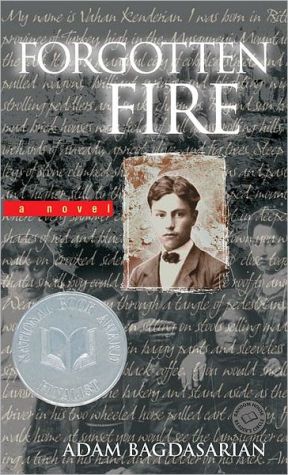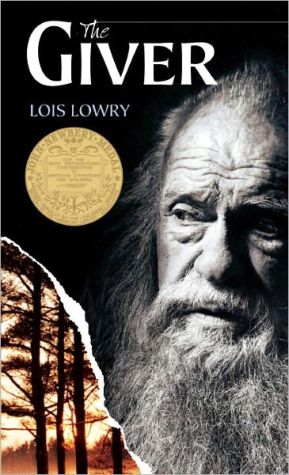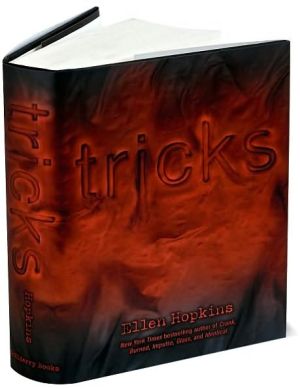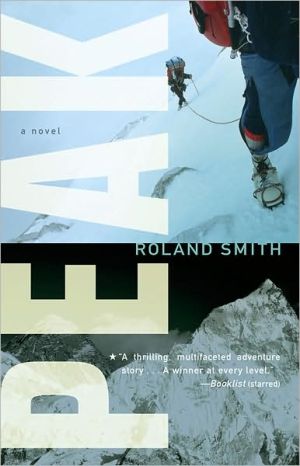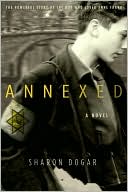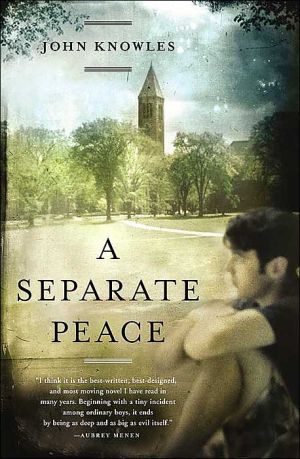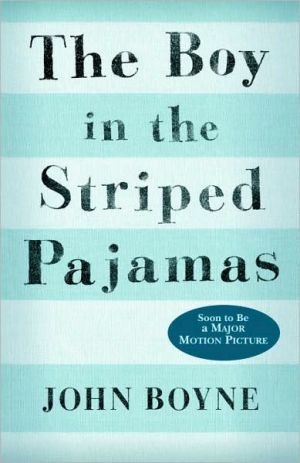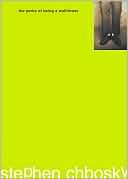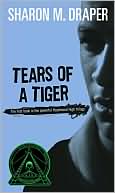Forgotten Fire
A National Book Award Finalist.\ \ In 1915 Vahan Kenderian is living a life of privilege as the youngest son of a wealthy Armenian family in Turkey. This secure world is shattered when some family members are whisked away while others are murdered before his eyes.\ Vahan loses his home and family, and is forced to live a life he would never have dreamed of in order to survive. Somehow Vahan’s incredible strength and spirit help him endure, even knowing that each day could be his last.
Search in google:
In 1915 Vahan Kenderian is living a life of privilege as the youngest son of a wealthy Armenian family in Turkey. This secure world is shattered when some family members are whisked away while others are murdered before his eyes. Vahan loses his home and family, and is forced to live a life he would never have dreamed of in order to survive. Somehow Vahan’s incredible strength and spirit help him endure, even knowing that each day could be his last.Children's Literature NewsletterThe author has produced a story of great value.
Chapter One\ My name is Vahan Kenderian. I was born in Bitlis, a province of Turkey, at the base of the Musguneyi Mountains of the East. It was a beautiful city of cobbled streets and horse-drawn wagons, brilliant springs and blighting winters, strolling peddlers and snake charmers. Beyond sunbaked mud-brick houses were fields of tall grass, rolling hills, and orchards of avocado, apricot, olive, and fig trees. Steep valleys of stone climbed sharply to grassy plains and pastures, and higher still to the slopes of snowcapped mountains where every summer evening the sun set in deepening shades of red and blue.\ On your way into town, you would walk on crooked sidewalks past houses so close together that a small boy could easily jump from one roof to another. Weaving your way through a tangle of pedestrians, you passed veiled women sitting on stools selling madzoon, and in shop windows you would see merchants dressed in baggy pants and vests, sipping small cups of black coffee. You smelled the lavosh bread from the bakery and stood aside as the cab driver in his two-wheeled horse-drawn cart drove by. Walking home at sunset, you would see the lamplighter carrying a torch in his hand and a ladder on his back. And as darkness fell, all the flat-roofed, tightly packed houses would become one great house where a thousand small lights burned.\ As far as an Armenian from Bitlis was concerned, Bitlis was the center of the world: Her mountains were the highest, her soil the most fertile, her women the loveliest, her men the bravest, her leaders the wisest. Of course, not every Armenian from Bitlis was praise-worthy. Some drank, some begged in the street, some swindled their employers, some were vain, careless, licentious, or lazy. But, for the most part, they were a hardworking and honorable people. At least the ones I knew.\ In 1915, I was twelve years old, the youngest child of one of the richest and most respected Armenians in Turkey. I was small for my age, stocky and strongly built, with curly brown hair, excellent posture, a firm handshake, and a brisk, determined stride. I walked with the confidence of a boy who has grown up in luxury and knows that he will always be comfortable, always well fed, always warm in winter and cool in summer.\ My father was afraid that I lacked character and discipline. And he was right. As far as I was concerned, character and discipline were consolation prizes given to the meek, the unadventurous, and the unlucky. Mrs. Gulbankian needed character because she was a widow and lived alone. Mr. Aberjanian needed discipline because he worked twelve hours a day selling groceries. Most adults, it seemed, needed character and discipline because their lives had long ago ceased to either amuse or fulfill them. "You'll see," they would say to me with knowing smiles, as though disillusion were a law as inevitable as gravity. But I knew better. I knew that time and destiny were my allies, the twin magicians of my fate: Time would transform me into the tallest, strongest man in Bitlis, and destiny would transform me into one of the wealthiest, most admired men in Turkey. I did not know if I would be a lawyer, like my father, or a doctor or a businessman, but I knew that I would be a man of consequence. When I walked down the street, people would say, "There goes Vahan Kenderian," and I would smile or not smile, depending on my mood that day.\ Unfortunately, I was an unlikely candidate for greatness—at least by conventional standards: In school I threw wads of paper at my friends Manoosh and Pattoo, spoke out of turn, fell asleep at my desk, and was generally the first one suspected whenever anything out of the ordinary happened anywhere on the grounds. Twice I had been sent home for wrestling in the halls, twelve times for skipping school, once for falling out of my chair, and once because I had given one of my teachers "a look."\ "What kind of look?" my mother asked me.\ "I don't know. I just looked at him."\ "How did you look at him?"\ "I don't know. Like this. Like I'm looking at you."\ Father Ossian said I had a poor attitude.\ Father Nahnikian said I was looking for attention.\ Father Asadourian said I should be disciplined as often as possible, preferably with a stick.\ My father gave me chores to build my character. When I forgot to do them, he would take me into the living room, sit me down, look me in the eye, and say, "What kind of man do you think you are going to be?" My father had black hair, a black mustache, and black eyes that could see through anyone or anything. He was the disciplinarian of the family, who, by example, tried to teach his children the laws of honor, integrity, and self-reliance. He was a man to whom others often turned for money or support, and he was always trying, in vain, to draw my consciousness beyond the long white wall that surrounded our property, to open my eyes to the challenges of the real world. The real world, as far as I could tell, was a terrifying place where half-dead men and women labored, bore children, grew old, grew ill, and died—a drab, inhospitable place where the grim and bitter read to one another from a book of woe. Naturally, I had no interest in that world, and no intention of ever becoming one of its citizens. In my real world, cold would always be answered with warmth, hunger with food, thirst with water, loneliness with love. In my real world, there would always be this house I loved, the laughter of brothers and sisters, uncles and cousins. In my real world, I would always belong, and I would always be happy.
\ African Sun TimesCompelling, uplifting...\ \ \ \ \ Flint Journal'Forgotten Fire' is gut-wrenching , painfully graphic and heartfelt prose.\ \ \ Washington Post...evocatively recounts the devastating experiences both seen and suffered by Vahan Kenarian...\ \ \ \ \ Seventeen MagazineForgotten Fire skillfully blends a history lesson with personal drama. Armenian teen Vahan Kendarian throws spitballs in class, falls asleep at his desk and hangs out with his older sister, Oskina. But when his family is captured by Turkish soldiers during World War I, Vahan starts a crusade to find freedom and his relatives.\ \ \ \ \ Suzanne Fisher StaplesThe truth rings through this powerful coming-of-age story with horrifying clarity as the idyllic world of Vahan Kendarian comes apart. Adam Bagdasarian writes with elegant simplicity and a sure eye for telling details, ensuring that his readers will not forget the tragedy of the Armenians in Turkey. This is an important story — I loved it!\ \ \ \ \ Michael CadnumAdam Bagdasarian's Forgotten Fire is a novel of character and authority, recounting a tragic and often overlooked human catastrophe as seen through the eyes of a young person. Written in a direct, unblinking and unsentimental prose, the book carries us through a landscape of terrible brutality, but leave us feeling that life is affirmed. This is a novel of courage and spirit.\ \ \ \ \ Michael J. ArlenForgotten Fire is impressive on several counts. The narrative is strong and gripping and I much admired the mixture of restraint and almost matter-of-fact emotion which forms the tone of the book. Eloquent and excellent.\ \ \ \ \ Rosellen BrownThe Survivor is in the oldest tradition of story-telling, bearing into the present not only the details but the feel of the past. The orphaned Armenian boy, living in terror and silence and stifled pride there among his enemies, seems to exemplify all exiles everywhere for whom the unknown went on forever. This is a brief glimpse into the history of brutality and of lonely courage.\ \ \ \ \ Nancy KricorianAdam Bagdasarian has taken his great-uncle's experience during the Armenian Genocide and transformed it into an utterly compelling and elegantly written narrative fiction. Forgotten Fire's convincing voice and heart-breaking details haunted me for days.\ \ \ \ \ W. Virginia Sunday Gazette MailAn important contribution to literature on the subject.\ \ \ \ \ Children's Literature NewsletterThe author has produced a story of great value.\ \ \ \ \ Publishers WeeklyDrawing on his own great-uncle's experiences, Bagdasarian covers the years 1915-1918 when a boy from a wealthy, well-respected family from Bitlis, Turkey, is stripped of everything simply because he is Armenian. "The prose is often graceful and the events are as gripping as they are horrifying," said PW. Ages 14-up. (Apr.) Copyright 2002 Cahners Business Information.\ \ \ \ \ Publishers Weekly\ - Publisher's Weekly\ Drawing on his own great-uncle's experiences, Bagdasarian covers the years 1915-1918 when a boy from a wealthy, well-respected family from Bitlis, Turkey, is stripped of everything simply because he is Armenian. Told from an adult perspective through flashbacks, Vahan's narrative covers a harrowing journey beginning with his father's disappearance and, within a week or so, what he describes as the "last day my childhood" at age 12: Turkish gendarmes execute his two older brothers and force the rest of the family--a brother, two sisters and mother--to walk for days without food or water. Upon his mother's urging, Vahan and his last surviving brother, Sisak, escape one night in the woods, and throughout the rest of the novel he experiences and witnesses unspeakable violence. The prose is often graceful (e.g., loneliness "simply comes, sits in the center of the heart where it cannot be overlooked, and abides") and the events are as gripping as they are horrifying. But unlike Anita Lobel's remarkable WWII memoir No Pretty Pictures, told from the perspective of a child who does not quite grasp what's happening around her, the narrative here maintains an adult sensibility. This point of view both distances readers from Vahan's emotions and makes the events disturbing for even the more mature adolescent readers (Vahan's sister commits suicide in front of him rather than risk rape by a Turk; he himself is sexually molested; he witnesses the rape of a 10-year-old girl). While this is an important history, it may be better suited to sophisticated teens and adults. Ages 12-up. (Oct.) Copyright 2000 Cahners Business Information.\ \ \ \ \ VOYAThis riveting first-person account of the savagery that characterized the Turkish-Armenian conflict prior to World War I is a sterling example of historical fiction at its finest. Through the eyes of fifteen-year-old Armenian Vahan Kendarian, readers see a world turned upside down and watch the attempted systematic destruction of a people and their culture. Born into the elite class, Vahan seems set on a distinguished career and complacent life. Political machinations are afoot, however, that will tear Vahan from his life as a spoiled, naïve youth in Turkey, thrusting him into the unwanted roles of outcast, beggar, and even slave. Horror follows horror as he sees his two older brothers getting shot, witnesses his sister's suicide, is powerless to stop his grandmother's murder, and loses another brother to fever brought on by lack of food and shelter. His straightforward account is even more chilling for its dispassionate telling. As he grasps at any straw to stay alive, he experiences firsthand the callousness of men whose first taste of power has extinguished their humanity. Holding fast to his late father's words, "Be steel," Vahan accepts the help of the Turkish governor—a man who delights in torture and death. Vahan disguises himself as a deaf mute in the camp of his enemies, ultimately depending on the trust of strangers to make his escape. Few titles treat this disgraceful period in European history; even fewer can transform it into a powerful message of the human spirit's ability to endure. Many passages are emotionally difficult to read, and there are several graphic sexual exchanges, yet it is a title recommended for both public and school library collections. Read itand weep. VOYA CODES: 5Q 3P J S (Hard to imagine it being any better written; Will appeal with pushing; Junior High, defined as grades 7 to 9; Senior High, defined as grades 10 to 12). 2000, DK Ink, 273p, $17.95. Ages 13 to 18. Reviewer: Cindy Lombardo \ SOURCE: VOYA, December 2000 (Vol. 23, No. 5)\ \ \ \ \ \ KLIATTThis YA novel is a National Book Award Finalist and was chosen by the ALA as a Top Ten Best Book for Young Adults. To quote from the review of the hardcover in KLIATT, September 2000: Forgotten Fire is based on the true story of the author's great-uncle, who survived the Armenian genocide in Turkey during WW I, when he was an adolescent. It is told in the first person, the narrator being a 12-year-old named Vahan at the beginning of the story. At this time, Vahan was a member of a large, prosperous family and his father was one of the most important men in their city of Bitlis, in the eastern part of Turkey, far from Istanbul, the capital city. The family was well educated, westernized, and privileged. All that changed when Turkish leaders decided to rid their country of Armenians. First, Vahan's father is taken away and shot. Then soldiers come to the house, terrorize the family, and end up by shooting Vahan's older brothers in front of all the family, who then have to dig graves and bury them in the garden at the back of the house. When Vahan, his next oldest brother, his sisters and mother are detained in a crowded, horrible place, one sister poisons herself rather than face being raped by the soldiers. On a forced march, the mother urges the boys to escape and try to stay alive somehow in the countryside. The brother is dead of illness within 10 days, so Vahan survives alone, begging, pretending to be Turkish, doing anything to live. This is the story of three dreadful years of his life, until the end of the war, and his journey to Istanbul where he is taken in as a sheltered orphan. This will be an important book for anyone with an Armenian heritage. As a survival story alone,it will appeal to a wider group of YA readers. KLIATT Codes: JS*—Exceptional book, recommended for junior and senior high school students. 2000, Dell, Laurel-Leaf, 272p., \ — Claire Rosser\ \ \ \ \ From The CriticsVahan Kenderian, at the tender age of twelve, was used to a plush life as a member of one of the most influential Armenian families in Turkey. That is until a Turkish soldier appears on his doorstep, escorting his father away permanently. This event marks the beginning of a journey that will force Vahan to grow from a boy into a man in a few short years. Vahan will feel the loss of home and his family. He will feel hunger and thirst. He will become a drifter, a slave, and an orphan. He will be free and then, a prisoner the rest of his life — all in the name of the Armenian Genocide of 1915. This is a true story of a young boy who finds the survivor within himself, allowing him the ability to rise out of the ashes of hate. This amazing, descriptive and detailed tale makes it a must read for young adults. Genre: Nonfiction/Armenian Genocide 2000, DK Publishing, 273 pp., $17.95. Ages 12 up. Reviewer: Alison Bostick; Winter Park, Florida\ \ \ \ \ Children's LiteratureIn the long history of man's overwhelming inhumanity to man, the destruction of the ethnic Armenian community by the Turks, just prior to World War I, is as gruesome as any human holocaust can be. This fictionalized version of the author's uncle's escape from his Turkish village reads like a documentary. The book begins with the annihilation of the young hero's family. Vahan Kendarian's father, a distinguished lawyer, is marched away by soldiers, never again to be seen by his family. Vahan's two elder brothers are shot to death before his eyes. His sister takes poison to avoid being raped while in captivity. His mother, in an act of incredible selfsacrifice, tells her remaining sons to escape, but only Vahan survives as a fugitive for the rest of the war. If the reader has no stomach for brutality, this is not an easily read book. The human destruction that the author portrays is both graphic and horrifying. There are simply no words to explain the cruelty of a tenyearold child being gang raped to death by a group of Turkish soldiers. As an historical document and an addition into the curriculum of Holocaustlike books, the author has produced a story of great value and raises important questions as to the compromises people must make when their very survival is at stake. However, make no mistake; this is not a book to be taken lightly or to be read by young people without extensive discussion of the bloodiness and ethnic conflicts of the twentieth century. 2000, Dorling Kindersley Publishing Inc., Ages 15 up, $17.95. Reviewer: Lois Rubin Gross\ \ \ \ \ School Library JournalGr 8 Up-It would be misleading to say that readers will enjoy this debut novel, but it is certain that they will be captivated, frightened, and profoundly affected by it. It is based on the true story of a 12-year-old boy who survived the massacre that saw hundreds of thousands of Armenians murdered after the Young Turks came to power. In 1915, Vahan Kenderian lives a pampered life that he has no reason to believe will ever end. But end it does, and in a brutal way. After the disappearance of his father and uncle, Vahan witnesses the murder of his two eldest brothers in the garden of the family home and, after a forced march, loses the other members of his family one by one. He faces hunger, destitution, beatings, and sexual abuse, and is forced to watch as others are killed or raped as he crosses Turkey in an attempt to escape this persecution of his people. Throughout these experiences, he develops, matures, and strengthens his resolve, at the same time-understandably-learning to fear the loss of anyone he becomes close to. When he finally reaches freedom in Constantinople in 1918, it is as though readers have, in some small way, endured these experiences as well, and come away stronger. If you're looking for a new piece of historical fiction to inspire students and ignite discussions, this is it.-Andrew Medlar, Chicago Public Library, IL Copyright 2000 Cahners Business Information.\ \ \ \ \ Kirkus ReviewsBagdasarian's moving story of the little-told horror of the Armenian genocide is based on the recorded account by his great uncle. The narrative follows Vahan Kendarian from age 12 to 16, from a somewhat spoiled and confident school cut-up to a somber and steely young man. He watches as his brothers are shot and his sister takes poison and dies to avoid rape. He is molested himself, and nurses several companions to their deaths. He also builds a sense of his own inner character as he puts on many outward disguises, traveling from one dangerous situation to the next. If the narrative itself seems to wander and stumble through these experiences imparting little sense of direction, it does add to the mood of confusion, despair, and occasional unfounded hope. The lack of contextual material may frustrate some readers (WWI is not mentioned, and the presence of German and Russian military in Turkey not fully explained), but the short foreword does give just enough information to set the scene, and plunges readers, along with Vahan, into a terrifying situation they may not fully comprehend at first. There is very little material available to young readers on this subject. Kerop Bedoukian's Some of Us Survived (1978) and David Kherdian's Newbery Honor book The Road from Home (1979) are still in print, but this should find a new and appreciative readership. (Fiction. 12+)Bateson Hill, Margaret MASHA AND THE FIREBIRD Illus. by Anne Wilson Zero To Ten (32 pp.) Oct. 1, 2000\ \
